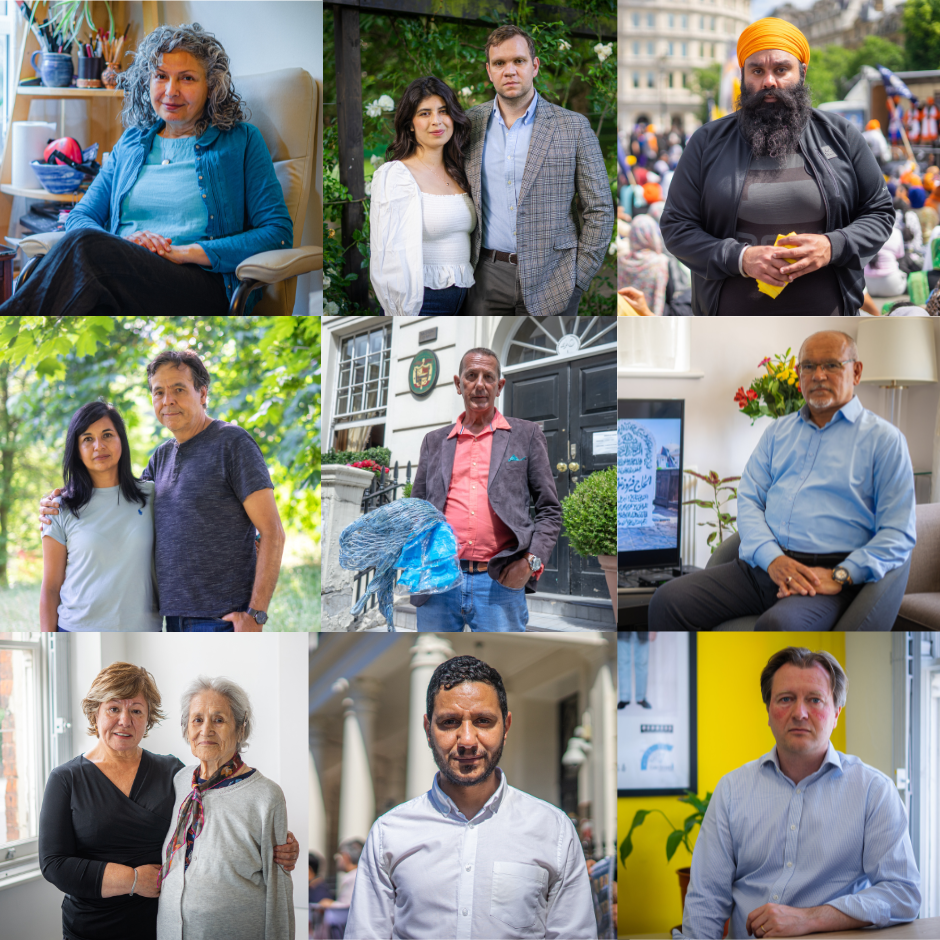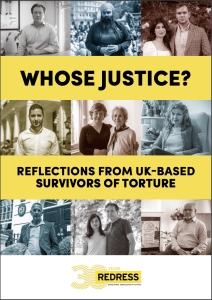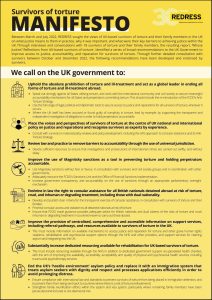Survivors’ Perceptions of Justice in the UK
The UK is home to between 60,000 and 98,000 survivors of torture in the refugee population alone, according to some studies.
REDRESS sought the views of UK-based survivors of torture and their family members in the UK on what justice meant to them in practice, why it was important, and what were their key barriers to achieving justice within the UK.
The report, Whose Justice? Reflections from UK-based survivors of torture, was produced as a result of these consultations confirms that UK-based survivors of torture are not a homogenous group, and their views on the meaning and importance of justice can differ significantly. It confirms previous findings of research undertaken on this issue, including by REDRESS in 2001, 2004 and 2009.
Some of the key findings of the report are:
- All survivors interviewed stated without exception that they wanted justice for the torture they experienced.
- When asked why justice was important, almost all emphasised the importance of accountability and prevention: ensuring that perpetrators cannot torture again.
- Very few survivors sought justice explicitly in the form of punishment for perpetrators. Whilst some survivors preferred to establish the truth through criminal prosecutions, others preferred obtaining a meaningful apology.
- Many survivors thought that justice was central to “set the record straight”. Obtaining an acknowledgement and recognition of what happened to them was important to address the disbelief that they often face about the torture they suffered or State-run disinformation or smear campaigns to discredit them and their testimony.
- Significantly, compensation was often secondary to accountability, prevention, and acknowledgement, but some survivors felt that States were increasingly using compensation as a way to escape more meaningful accountability and measures of prevention.
- Rehabilitation was uniformly considered essential to survivors, although a number of survivors did not view this as part of ‘justice’, as they saw it more as a personal journey that had nothing to do with the perpetrators.
Read the report and the Survivors of torture manifesto



